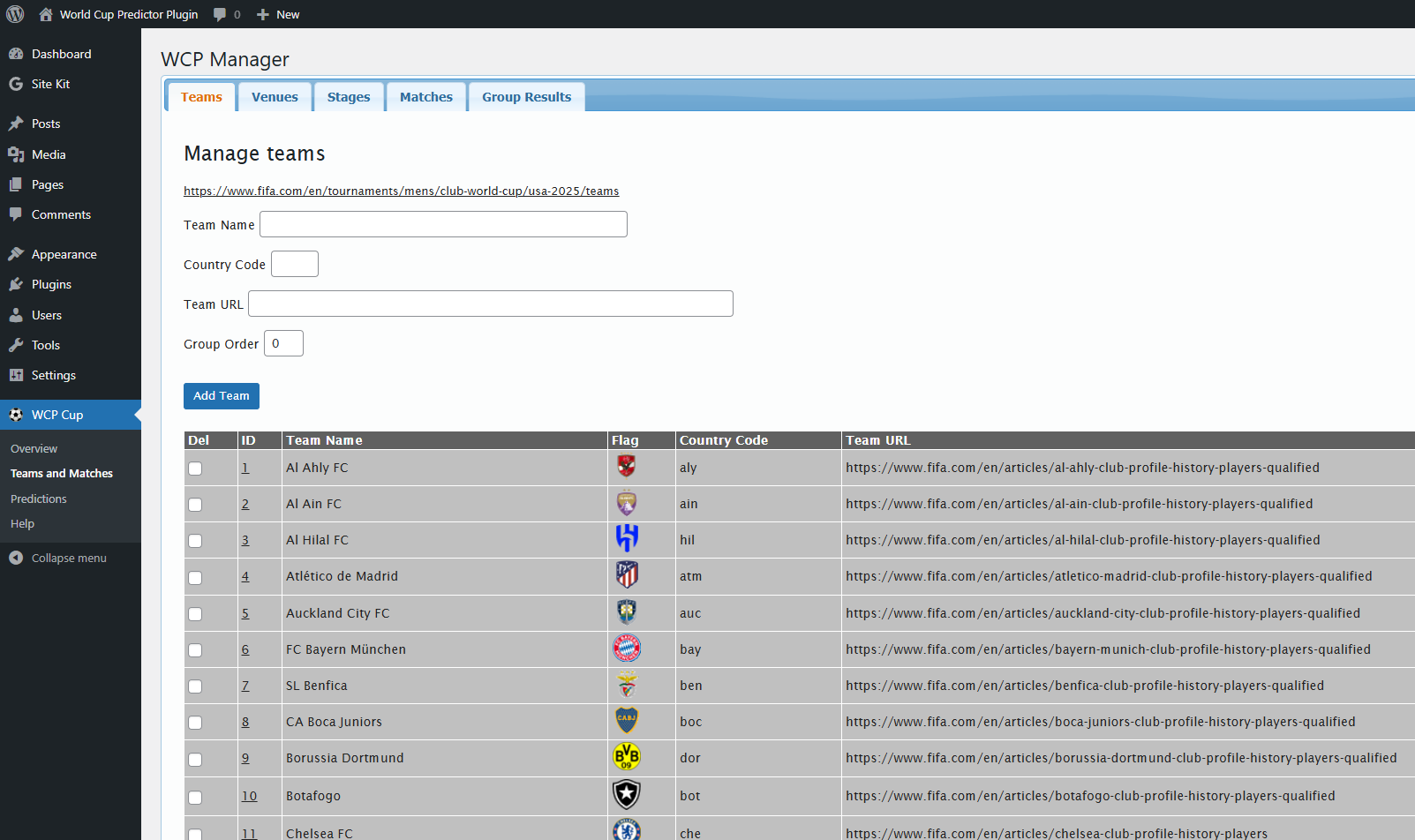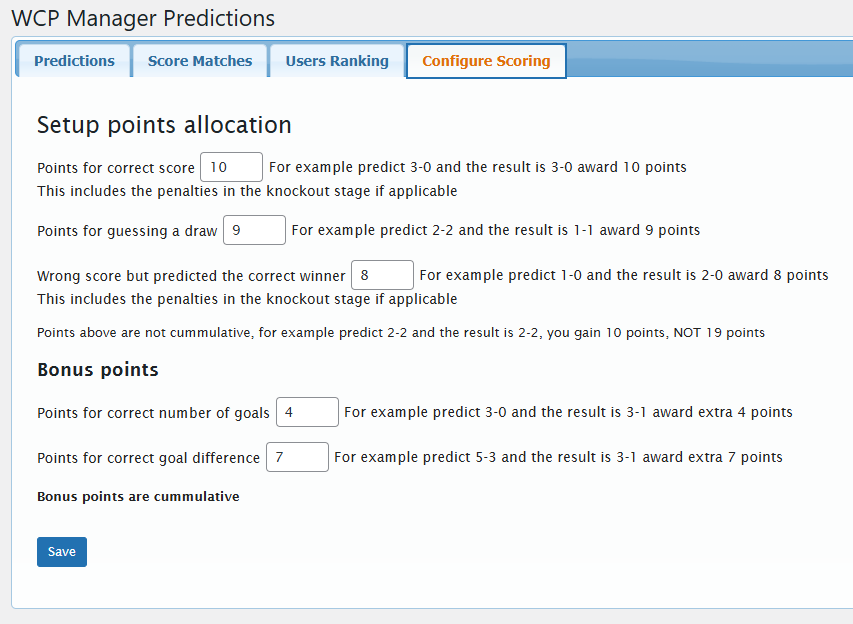The World Cup Predictor plugin was released in 2010. At the time, it met the needs of users (WordPress site managers) well and worked well in the version of WP available at the time.
However, as time went by, WordPress grew and some of its features that were not included in the World Cup Predictor plugin began to emerge.
One example is WordPress Multisite.
Anyone who has used the World Cup Predictor plugin on their website knows that the administrative pages were created using its own standard, grouping the configuration options in Tabs within each section. We did this because when the plugin was released, we decided not to use post types, keeping all the plugin settings in separate tables from the ones that are essential for WordPress to work. This way, if you decide to remove the plugin from the site after the tournament is over, the tables are deleted without leaving any residue in your database.
Many users like this and prefer the plugin to actually work this way. However, if we used post types, scalability would work better. There would be no more problems using the plugin on multisites and it could interact better with other plugins such as ACF or post type import/export plugins, for example.
Another advantage would be that since it is a post type, managers will be able to have pages on their sites regarding those items. In the current version, we even have a Team URL option where you can save a URL that corresponds to a team (whether that URL is on your site or not), but a page for the team is not automatically created, for example, and displayed on your site for users to search for information. In terms of SEO, it might be interesting to make these pages available.
In this case, there could also be Venues pages and even Matches, which could display the match summary or line-up predictions before the match starts.
As for Stages, it would not be worth creating a post type for this. In fact, we intend to restructure this stage section in the next version of the plugin, as it does not cover all possible competition scenarios (in the 2025 São Paulo Championship, for example, teams from one group face teams from another group and we cannot save the games like this in the current version of the plugin).
Another advantage of this change is the API issue. Because it uses separate tables, match data and predictions are not available natively in the WordPress API. For most website administrators this is not a problem, but we know that there are some applications that use the WordPress API and in these cases it is not possible to extend this information.
In addition, many website managers often ask the plugin’s support for it to work automatically. In other words, managers no longer need to save match results when they are finished, but instead for this to happen automatically, already calculating the ranking. This functionality depends on an API to be implemented.
Anyway, we are open to the possibility of making this, which would be the biggest change to the plugin since its release, but we would like to hear from you first so we can decide which direction we should take.



